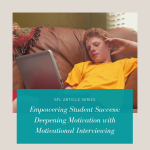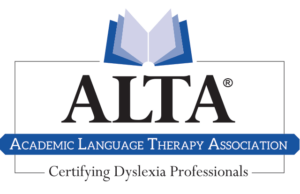No products in the cart.

Written by Stephanie Broytman, MA Learning Disabilities
Finding a school placement for your child can be a challenging experience. If your child has special needs, it feels even more crucial to find exactly the right placement. There are many things you may take into consideration before deciding on a school for your child:
1. Academic Quality: Does the school’s curriculum align with your child’s educational needs and goals? Ensure that the school offers flexibility and differentiation to accommodate diverse learning needs. A curriculum allowing personalized learning plans and instructional strategies tailored to individual learning styles can significantly benefit a child with special needs. You may also look at the school’s average test scores to gauge the academic performance of the student body. Check if an accrediting agency recognizes the school to determine whether the school maintains a high level of educational standards.
2. School Culture and Values: Read the school’s mission statement and consider its core values and educational philosophy. Inquire about the school’s disciplinary approach and policies. You may ask about sports, arts, clubs, and other activities your child is interested in. Participating in extracurriculars can help your child develop new skills, self-esteem, and friendships. Does the school promote an inclusive and accepting environment for students with learning disabilities? Look for evidence of positive attitudes towards diversity, an anti-bullying policy, and an environment where all students are treated with respect.
3. Teacher Quality and Support: Request the qualifications, experience, and training of teachers and staff working with learning-disabled students. Look for educators with special education expertise or experience with learning disabilities. Ask if there are regular opportunities for teachers to attend professional development sessions. Smaller class sizes allow for more individualized attention, which can be crucial for a learning-disabled child. Additionally, find out about the availability of classroom aides or paraprofessionals who can provide additional support.
4. Special Needs Support: Evaluate the school’s quality of special education services. Look for certified special educators, evidence-based curriculum programs, and related services such as speech therapy, occupational therapy, or counseling. Ask about the school’s process for creating and implementing IEPs. If your child is approaching high school, you may want to ask how the school approaches transition planning and post-graduation support.
5. Facilities and Resources: Visit the school and tour the classrooms, libraries, and recreational areas. Evaluate the school’s use of technology. Ask about the availability of books, computers, educational materials, and learning aids.
6. Parental Involvement: Understand how the school informs parents about their child’s progress. Determine if the school has an active PTA that encourages parental involvement. A school that values and promotes open communication with parents can create a stronger support system for your child.
7. School Safety and Security: Ask about the school’s security protocols. Are staff trained in emergency preparedness and safety measures? Inquire about the school’s policies and actions to prevent and address bullying incidents.
8. Financial Considerations: Determine if the school’s tuition and fees fit your family’s budget. Inquire about available scholarships, grants, or financial aid programs.
9. Application Process: Familiarize yourself with the application materials, deadlines, and additional requirements. Check if the school requires any entrance exams or assessments. Ask if an interview with the school administration or faculty is part of the application process.
10. School Tours and Open Houses: Arrange a visit to see the school’s environment and facilities firsthand. Take advantage of open house events to learn more about the school’s programs and interact with teachers.
11. Parent and Student Feedback: Gather feedback from current or former parents and students of the school. Research online to find reviews and testimonials.
Remember that each child is unique, so choosing a school that aligns with your child’s specific needs, strengths, and learning style is essential!
Learn more about school placement and how SfL can help you sort out your options and determine what’s most important for your student’s specific situation.
Additional Resources:






